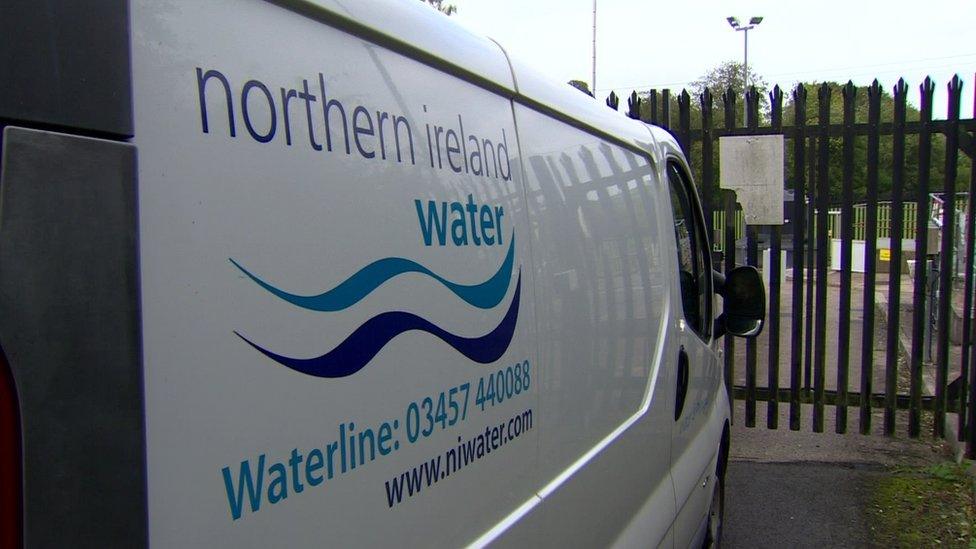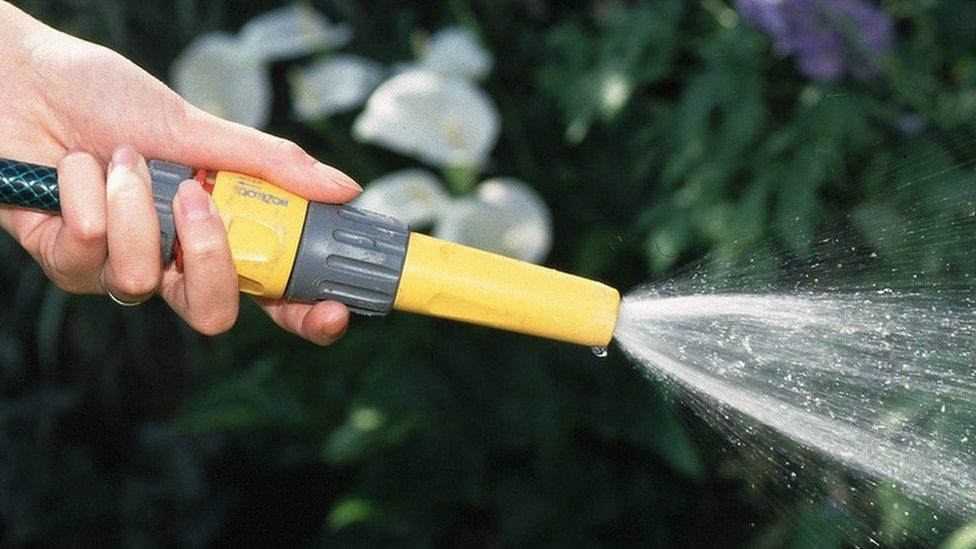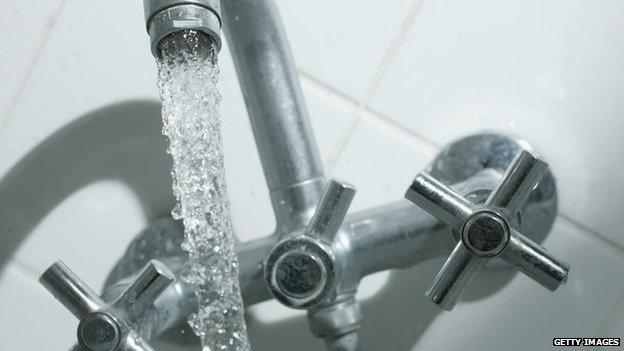Coronavirus: NI Water faces Covid 'cost shock'
- Published

NI Water has warned of potential threats to the environment and economy
The Covid pandemic has put more pressure on NI's underfunded water and wastewater network, according to NI Water's annual report.
Lockdown handwashing meant more water was used and a period of warm weather led to an increase in paddling pools.
This rise in demand was met by a "cost shock" as customers such as hotels closed causing a fall in revenues.
NI Water also had to pay for things like PPE for staff who continued to work throughout lockdown.
A spokeswoman for the Department for Infrastructure said that its minister, Nichola Mallon, has "consistently made the case that further investment is required in order to maintain services, and to increase housing supply and support economic development".
"Without drains, there won't be cranes," she added.
"Minister Mallon is committed to fighting for further investment to secure the future of water and wastewater infrastructure."

A spokeswoman for Infrastructure Minister Nichola Mallon said she was committed to securing investment for the water network
NI Water is government-owned and funded by the block grant. It outlines how much investment it needs in a plan that must be approved by the Utility Regulator, then it is up to the executive to fund it.
Unlike in the rest of the UK, approval by the regulator does not guarantee funding and it said that the business model is broken as there has been a legacy of underinvestment.
Chairman Dr Leonard O'Hagan said: "Our business faces unprecedented strategic challenges due to the climate emergency, coupled with a growing population and continued underfunding.
"The outbreak of Covid-19 has added a new dimension to these challenges."
'Underinvestment'
This underinvestment has already curbed economic development in 100 towns across Northern Ireland, which are already at capacity when it comes to the drainage network.
It means developers planning new homes or offices will not be able to be connected.
The report said a recent example of this was plans for an aparthotel near Windsor Park football stadium in Belfast, which were refused planning consent because of constraints to the wastewater system.
NI Water said it needs £2.5bn to cover the period 2021 to 2027.
Dr O'Hagan said: "Unless we start properly investing in our failing wastewater infrastructure, we will have to make difficult choices about our economy and our natural environment.
"Failure to do so will lead to an infrastructure funding crisis with negative impacts for our environment and our economy," he added.
- Published1 June 2020

- Published20 March 2019
